Rodents in Hampton Roads: What Homeowners Need to Know About Rats & Mice


You’re sitting on the couch when you hear it—a faint scratching sound in the walls. Or maybe you’ve found gnawed food packages, tiny droppings under the sink, or worse... caught a glimpse of something furry dashing across the kitchen floor. If any of this sounds familiar, you might have a rodent problem.
In this post, we’ll cover everything Hampton Roads homeowners need to know about rodents: what kinds are common here, how they get into your home, the dangers they bring, and how to get rid of them—for good.
First Things First: Why Are Rodents in My Home?
Rodents are looking for the same things we are:
Food
Water
Shelter
Your warm, dry home offers all three—especially in the fall and winter when outdoor conditions worsen. They sneak in through tiny cracks, travel along utility lines, and can even enter through open garage doors or unsealed vents.
Once inside, they can reproduce rapidly, contaminate surfaces, and cause expensive damage.
Common Rodents in Hampton Roads
1. House Mice
Small, gray or brown
Quick, agile, and can fit through holes the size of a dime
Nest in walls, attics, cabinets, and insulation
2. Norway Rats (Sewer Rats)
Large and heavy-bodied
Prefer basements, crawlspaces, and ground-level areas
Known to burrow under foundations
3. Roof Rats (Black Rats)
Sleek with a long tail—excellent climbers
Found in attics, rafters, trees, and high shelving
More common near the coast
Why Rodents Are More Than Just a Nuisance
Rodents aren't just creepy—they’re destructive and dangerous.
1. Health Risks: Rodents carry a range of diseases, including:
Hantavirus
Salmonella
Leptospirosis
Rat-bite fever
They also leave behind urine, feces, and hair—all of which contaminate surfaces and trigger allergies or asthma (especially in children).
2. Property Damage: Rodents chew constantly—on wood, drywall, plastic, and even electrical wiring (which can lead to fires). They’ll also tear up insulation and damage HVAC systems.
Signs You Have Rodents in Your Home
If you spot any of these signs, it’s time to act:
Droppings (small pellets or capsules)
Chewed packaging or wiring
Greasy rub marks along walls or baseboards
Scratching or scampering sounds (especially at night)
Nests made of shredded paper or insulation
Unusual pet behavior—cats and dogs often sense rodents before we do
How to Prevent Rodent Infestations
1. Seal Entry Points: Use steel wool, caulk, or hardware cloth to seal:
Gaps around doors/windows
Pipe openings and utility lines
Cracks in foundations and siding
Vents and crawlspace access points
2. Keep Food Sealed: Store all pantry items in airtight containers and clean up crumbs quickly. Don't leave pet food out overnight.
3. Eliminate Water Sources: Fix leaks, empty unused sinks, and reduce standing water in crawlspaces or basements.
4. Declutter and Clean: Rodents love clutter—it gives them places to hide and nest. Regularly clean storage areas, garages, and sheds.
Do DIY Rodent Traps Work?
DIY traps can reduce the population, but they don’t fix the root cause of the infestation. Most DIY efforts miss:
The entry points rodents are using
The full nest or breeding site
Recurring attractants (food, water, clutter)
Worse, dead rodents can create foul odors if they die inside your walls or attic.
What Busby Precision Pest Does Differently
Our Rodent Control Program goes beyond setting traps—we provide full-service rodent control, including:
Thorough Inspection – We identify entry points, nests, and attractants.
Targeted Treatment – Includes safe trapping, baiting, and repellents.
Exclusion Work – We seal access points to prevent future entry.
Sanitization & Odor Removal – If rodents left behind messes or smells, we’ll clean it up.
Follow-Up Monitoring – We ensure your home stays rodent-free.
When Are Rodents Most Active in Hampton Roads?
Rodent activity spikes in late fall and winter, as cooler temperatures push them indoors. But in our humid climate, rodents can be active year-round, especially if there's food or water access inside your home.
Why Hampton Roads Homes Are at Higher Risk
Hampton Roads has:
Older homes with crawlspaces and unsealed vents
Humid weather (which draws pests)
Coastal flooding risks (rodents escape rising water)
All of these make our area prime real estate for rodents—which is why preventative pest control is so important.
Frequently Asked Questions
Q: Are rats worse than mice?
A: Both are problematic, but rats are larger, more destructive, and harder to trap. Mice are sneakier and can squeeze into smaller spaces.
Q: Can rodents really cause house fires?
A: Yes. Rodents chew wires, and chewed insulation can lead to short circuits and fires. This is a real safety hazard.
Q: How fast do rodents reproduce?
A: Very fast. A single mouse can have up to 10 litters a year, with 5–12 babies each time. That’s over 100 mice in a single year—from one pair.
Don’t Wait Until It’s an Infestation
Rodents multiply quickly. The longer you wait, the worse it gets. At BUSBY PRECISION PEST & DAMAGE CONTROL, we help homeowners across Chesapeake, Virginia Beach, Norfolk, and the greater Hampton Roads area eliminate rodents fast—and prevent them from coming back.


